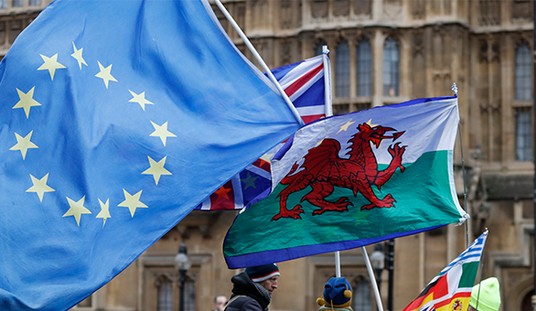Have we reached the end of political advertising? Donald Trump spent next to nothing on televised campaign spots during the primaries — and not all that much more on web-only ads, for that matter — and dominated from start to finish. Trump then went dark for months on broadcast television while Hillary Clinton poured money into traditional television advertising over the summer. Last month, Team Hillary spent 68% of their campaign cash on TV ads, the Washington Post reports this morning, going all-in on attacking Trump’s temperament and character:
The massive investment that Democratic presidential nominee Hillary Clinton is making on the airwaves dominated her spending in August, as her campaign plowed more than $33 million in ad production and airtime, a new campaign finance filing shows.
Clinton’s media expenses accounted for 68 percent of the $49 million that her campaign raced through in its biggest spending month yet. She doled out $5 million to pay 789 staffers in August. And she dramatically upped her polling, shelling out almost $1.3 million to five separate firms, up from $244,173 in July.
What exactly has air supremacy bought Hillary? At the moment, the race is all but tied, and Hillary has lost ground over the last four weeks. FiveThirtyEight’s polling aggregation and analysis now gives Trump a 42.9% chance of winning the election, nearly quadrupling the 10.8% shot Trump had five weeks ago:

What does this tell us about campaign advertising? Perhaps not as much as we’d like to think. Voters tend to dismiss advertising in politics, but not with much evidence … until now, anyway. However, to call this an unusual election is to engage in humorous understatement. Both Donald Trump and Hillary Clinton came into this race with name-recognition saturation, so attempting to define Trump through attack ads seems rather futile in retrospect. For that matter, attempts to reframe Hillary through positive advertising seems almost as futile, even if the redefinition itself is clearly needed.
What would have worked? I’m just spitballing here, but perhaps a clearer focus on policy might have made a difference for Hillary. Given her long experience in government, that should have been a strength, although her track record while serving in government suggests that may be just another weakness. But relying on candidate-defining ads in a race where both candidates are already so well known clearly has been a waste of time, effort, and tons of cash.
Interestingly, Trump has begun to open up his campaign’s coffers — but not necessarily for a massive air war:
The campaign’s largest investment continues to be in digital consulting and online ads. Giles-Parscale, a San Antonio-based firm whose president, Brad Parscale, serves as the Trump campaign’s digital director, was once again the biggest vendor for the month, collecting $11.1 million, much of which was directed to digital ads. The company, which got its foothold designing websites for the Trump Organization in 2011, had previously been paid $12.5 million this cycle.
Cambridge Analytica, a data-analytics firm backed by GOP megadonor Robert Mercer, got $250,000 in August, up from $100,000 in July. Trump’s media consultant, Rick Reed, was paid $4.5 million to place TV ads. And Private Jet Services, a New Hampshire-based air charter, received $2.3 million. That’s a shift from past months, when Trump mainly used own his private jet company Tag Air to fly. In August, Tag Air was paid just about $320,000. …
Of the $90 million that Trump said he raised in conjunction with the Republican National Committee in August, his campaign reported collecting nearly $41 million for the month. He began September with $50.3 million in the bank.
After looking at the futility of Hillary’s bombardment, Trump might have concluded that broadcast ads aren’t worth the investment. That’s still a gamble; there’s a question of opportunity cost from not running a major ad campaign, as in “Could Trump’s odds have risen any further with more robust advertising?” If the lightweight TV footprint carries the day, however, it might spell the end of a lucrative quadrennial income opportunity for broadcasters … but perhaps only when it comes to political and entertainment celebrities.








Join the conversation as a VIP Member